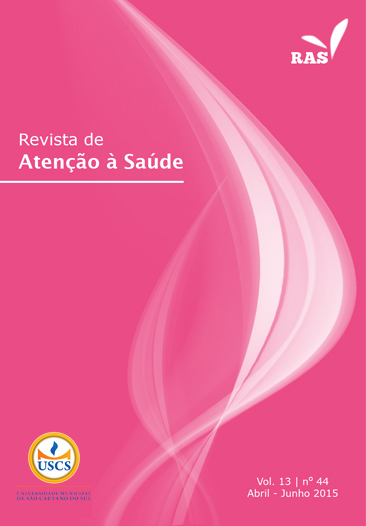Sleep patterns among nursing professionals
DOI:
https://doi.org/10.13037/ras.vol13n44.2493Keywords:
Sleep evaluation, nurses, double shiftAbstract
Introduction: The sleep quality of professionals is important to the performance and efficiency of nursingactivities in different shifts. Proper sleep pattern allows the professional to have a better quality of life,higher productivity and more effectively meet the patients. Objective: The aim of this study was to analyzethe sleep patterns of nurses of the day and night shifts of three health facilities in the municipality ofFrancisco Beltrão, Paraná. Method: The field research was conducted at the Policlínica São Vicente dePaula, Hospital São Francisco and emergency care 24 hours with 92 nursing staff of three categories:nurses, nursing assistants and technicians. Data were collected by applying a questionnaire of 20 closed,structured questions, characterizing it as a quantitative study. Results and conclusion: The main resultsshow that nursing professionals do not have a regular sleep pattern, mainly due to shift work and hoursworked. The nursing staff presents alterations in sleep and rest, dissatisfaction with sleep and said qualityof life, in addition to demonstrating health problems resulting from physical and mental work rate.Downloads
Downloads
Published
2015-05-29
Issue
Section
ARTIGOS ORIGINAIS
License
Policy Proposal for Journals offering Free Delayed Access
Authors who publish in this magazine agree to the following terms:
- Authors maintain the copyright and grant the journal the right to the first publication, with the work simultaneously licensed under a Creative Commons Attribution License after publication, allowing the sharing of the work with recognition of the authorship of the work and initial publication in this journal.
- Authors are authorized to assume additional contracts separately, for non-exclusive distribution of the version of the work published in this magazine (eg, publishing in institutional repository or as a book chapter), with the acknowledgment of the authorship and initial publication in this journal.
- Authors are allowed and encouraged to publish and distribute their work online (eg in institutional repositories or on their personal page) at any point before or during the editorial process, as this can generate productive changes, as well as increase impact and citation of the published work (See The Effect of Open Access).









